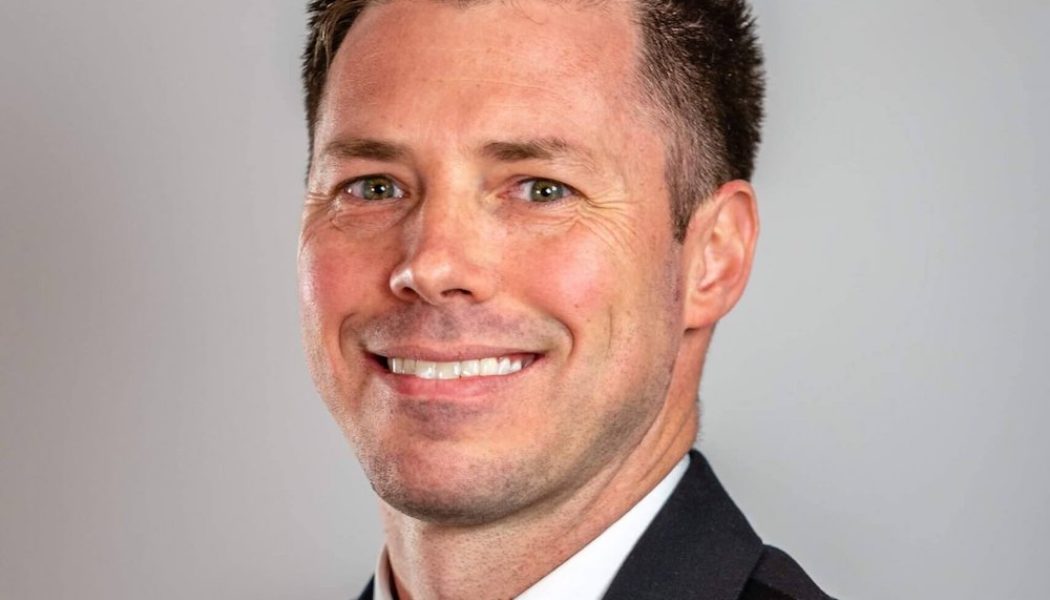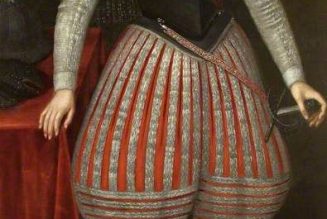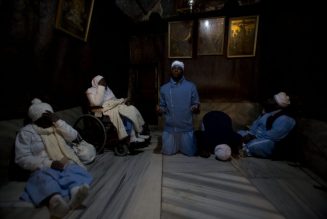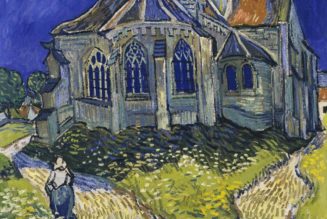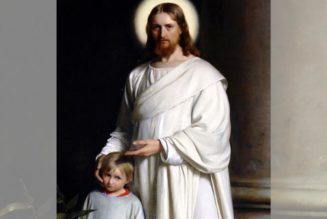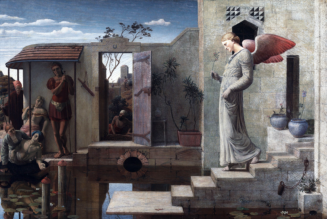When my wife and I first got married, we didn’t have many friends who were practicing Catholics. I had to fish for a college friend to be the godfather of our firstborn, and I attended a Protestant Bible study for six years because I couldn’t find a Catholic one. We felt alone as we slowly turned the boat toward the shores of Catholic orthodoxy.
So, I prayed. I prayed the prayer of St. Francis: “Lord, send me some brothers.” And, eventually, one by one, He did. A priest in our area was organizing a winter hike in single-digit temperatures and I got plugged in with some good, solid Catholic guys. I was very grateful for these guys; it seemed like the community, the band of brothers, I had been looking for.
I want to be clear about something here: none of what I’m about to write is reflective of these guys in particular. From other male Catholic friends I’ve talked to in other areas of the country, I’ve heard that they seem to deal with the same issues and challenges that I do here in my area. So, I think the issue is one of the idea of a Catholic men’s group in general, not a particular group specifically.
Orthodox. Faithful. Free.
Sign up to get Crisis articles delivered to your inbox daily
form.fluent_form_4 .ff-t-cell {padding: 0px;}
form.fluent_form_4 .ff-t-cell:last-of-type {width: 60%;}
form.fluent_form_4 .ff-el-form-control {padding: 18px 16px 19px!important; border-radius: 2px 0 0 2px!important;}
form.fluent_form_4 .wpf_has_custom_css.ff-btn-submit {border-radius: 0 2px 2px 0;}
} .fluentform_wrapper_4{ margin: px; } .fluentform_wrapper_4{ padding: px; } .fluentform_wrapper_4 .ff-el-group.ff_submit_btn_wrapper { text-align: center; }.fluentform_wrapper_4 .ff_submit_btn_wrapper .ff-btn-submit { background-color: rgba(0, 68, 177, 1);padding-top: 20px;padding-left: 10px;padding-right: 10px;padding-bottom: 20px; }.fluentform_wrapper_4 .ff_submit_btn_wrapper .ff-btn-submit:hover { background-color: rgba(253, 159, 1, 1); }
Anyone who has done a group project knows that some people are naturally “take charge” while others remain more passive and allow other people to lead. Men’s groups are no exception. In one sense, a group really needs that one guy (or two, or three) who can play the project-manager role and bring guys together, put the work in to build some structure and accountability, and keep men engaged.
The downside to this is twofold: firstly, the functioning of the group can become dependent on that one man without a sustainable system in place if and when he leaves, moves, or steps down. Secondly, the guy stepping into that role (usually because no one else wants to) can become resentful of the time and work he is putting in to make things happen, and he can become burned out in the process.
To overcome these obstacles, you could do the “President,” “Vice President,” “Secretary,” “Treasurer” thing, but then it becomes much less organic and more like a second job, something you have to do. Or you could just keep it unstructured and decentralized, with no one really leading the group. But men being men, it becomes easy to just not do or suggest anything then. Everyone becomes passive, or, at the very best, they rely on an organic approach in which things happen as they happen.
In my experience, guys do not just get together to talk in the same way women do. Men use one-third the number of words women do in a day, and their time spent together (for better or worse) needs to be structured around some kind of activity for it to work. This, too, is another kind of no-win trap. If there is a lack of activity or something to do or accomplish, men will not naturally spend time together for long. But the logistics of planning “things to do” often necessitates a point-guy to take charge and make it happen for the group. (See the previous section regarding the reticence of guys to step into this role.)
If there is no common vision—something to work toward or be challenged by, or some string that holds the group together—it becomes “guys hanging out.” That kind of group is easy to walk away from because it doesn’t require anything—no work, no accountability, no undertaking of any kind. Just show up and do whatever. But when you start actually requiring things of men, you run into the third problem, which is….
Many of the men who are in most need of Catholic male fellowship are in the worst position to make it happen: mid-career, young and growing family, demands on time to balance everything…anything that isn’t work or family gets pushed to the back burner. Which is largely understandable—and also a reason why many men’s groups peter out or become inactive. It isn’t a top priority, despite the lip service that is given to the need for strong men in the Church today. When the going gets tough, the tough get…busy.
Another issue I’ve seen that goes back to the problem of needing to “do” or “accomplish” something as men is that when that “task” is complete, there’s no real reason to stay connected with one another. I’ve done Exodus 90 twice, and while it is good at challenging men (cold showers, fasting, prayer, etc.), I hardly have any contact anymore with the men I’ve gone through the program with. Sure, it appeals to male sensibilities for a challenge, to be pushed, and to structure fellowship around a “thing” to focus on (i.e., the 90-day program), which is why it is a relatively successful Catholic program for men. But what then, on Day 91 and beyond? This is the challenge for any kind of program-based regimen to build male fellowship—when the program ends, so does the fellowship, largely.
Parish-based men’s programs suffer from the usual problem: since you are drawing from a limited scope of men based on parochial parameters, it skews older and tends to feel forced, inorganic, and unsustainable. Organizations like the Knights of Columbus do good work. They are good men. But, as a friend described them, they are largely “a civic group, and manpower for the parish.” They skew older as well, the uniforms are goofy (in my opinion), and the insurance thing is annoying. Not my thing. But that doesn’t mean a lot of men don’t gain benefit from it; just not many from my demographic. Maybe in another ten years or so I’ll get my second degree. Maybe.
“Virtual” groups have their own issues. I had to do a Zoom event for work recently; the night before, we had an in-person event. The energy was totally different. At the in-person event, there was an energy and buzz; the Zoom event was largely flat and tired. Zoom fatigue is real, especially when you use it for work. Sure, you don’t have the geographic constraints, but there is a lot lacking when you are not physically present with other men.
Virtual life is not real life. I’m going to say it again so the people in the back can hear: virtual life is not real life. The more one lives online, debating with internet strangers or going down reddit rabbit holes, the more underformed one’s character seems to be. For many men who live in more isolated areas, it’s a temptation for sure, due to being the “next best thing” to real life and in-person interaction. I get it. But I still believe social media and the like are a harmful experiment that we will wake up to years from now with massive societal damage to reckon for.
One of the things I was looking for most in a men’s group was the least easily found, and that was accountability. Despite the solidness of the guys in my local group, and our years of knowing each other, there are virtually none whom I feel I could rely on for spiritual accountability, nor guys who would trust me with that aspect of their lives. Maybe that’s just the way it is with men—we hide things easily and withdraw into ourselves, whether because of shame or how we are trained to be islands of one. body .novashare-ctt{display:block;position:relative;background:#fd9f01;margin:30px auto;padding:20px 20px 20px 15px;color:#fff;text-decoration:none!important;box-shadow:none!important;-webkit-box-shadow:none!important;-moz-box-shadow:none!important;border:none;border-left:5px solid #fd9f01}body .novashare-ctt:hover{color:#fff}body .novashare-ctt:visited{color:#fff}body .novashare-ctt *{pointer-events:none}body .novashare-ctt .novashare-ctt-tweet{display:block;font-size:18px;line-height:27px;margin-bottom:10px}body .novashare-ctt .novashare-ctt-cta-container{display:block;overflow:hidden}body .novashare-ctt .novashare-ctt-cta{float:right}body .novashare-ctt.novashare-ctt-cta-left .novashare-ctt-cta{float:left}body .novashare-ctt .novashare-ctt-cta-text{font-size:16px;line-height:16px;vertical-align:middle}body .novashare-ctt .novashare-ctt-cta-icon{margin-left:10px;display:inline-block;vertical-align:middle}body .novashare-ctt .novashare-ctt-cta-icon svg{vertical-align:middle;height:18px}body .novashare-ctt.novashare-ctt-simple{background:0 0;padding:10px 0 10px 20px;color:inherit}body .novashare-ctt.novashare-ctt-simple-alt{background:#f9f9f9;padding:20px;color:#404040}body .novashare-ctt:hover::before{content:”;position:absolute;top:0px;bottom:0px;left:-5px;width:5px;background:rgba(0,0,0,0.25);}body .novashare-ctt.novashare-ctt-simple .novashare-ctt-cta,body .novashare-ctt.novashare-ctt-simple-alt .novashare-ctt-cta{color:#fd9f01}body .novashare-ctt.novashare-ctt-simple-alt:hover .novashare-ctt-cta,body .novashare-ctt.novashare-ctt-simple:hover .novashare-ctt-cta{filter:brightness(75%)}
It’s inevitable that some guys will come and go, move, or have schedule changes that preclude them from staying involved in one group for years on end. To the extent that you are not bringing new guys in, you are failing to grow and may not be in a situation in which you can sustain the group over the years. It also becomes tempting to be comfortable and cliquey when you just keep it to a little club.
Every time I see a Catholic guy in a tweed jacket or bowtie smoking a pipe or drinking whiskey while waxing about Chesterton or Belloc, I groan a little. Same for the Man Up type marketing for diocesan men’s conferences—the soldier/military imagery, the baseball Hall of Fame speakers. I mean, they’re stuck between a rock and a hard place here, so I feel for the planners of these events.
The fact is, though, a lot of men—like myself—don’t fit into these boxes, and it doesn’t make us less of a man. They are shallow, easy stereotypes, so you don’t have to think too much about what actually makes one a Catholic man.
The thing I struggle with as a Catholic man is that cognitive dissonance that comes with being told that “men need other men; iron sharpens iron!” while simultaneously seeing guys who don’t really believe that. It becomes Catholic, Inc. marketing for things like Into the Breach and Battle Ready (TM). For most guys, I would wager, they actually feel that work and family is all a man should really need. And they act accordingly. Why should I pour into my local group, after a number of years doing so, when I can just be like most men I know who are content with working and being with their family?
Most Catholic men’s groups and diocesan initiatives recognize the need for strong men in the Church, but they are impotent to exact the change on a sustainable, year-after-year level, in real fellowship. Maybe that’s just the way things are, the nature of manhood, and to expect otherwise is…well, misguided expectations. Or maybe it’s a Catholic problem, since “fellowship” is often seen as a thing for Protestants. We have the Mass and sacraments—why do we need each other? Maybe we don’t. Maybe it’s true—work, family, and our local parish community should be enough.
I think what it comes down to is this: to the degree that men are not growing in virtue, or loving each other sincerely in fraternal charity, you may be better off not wasting your time.
I think the sad fact is, for many of us men, we are largely on our own. Sometimes we might actually want more but don’t know how to go about forming it. Or maybe it’s just me. If we can find one or two solid men to rely on in our times of need, and be that man to them as well, that’s a plus. But largely, I wouldn’t count on a Catholic men’s group holding up for more than a few years. If it does, consider yourself blessed.
